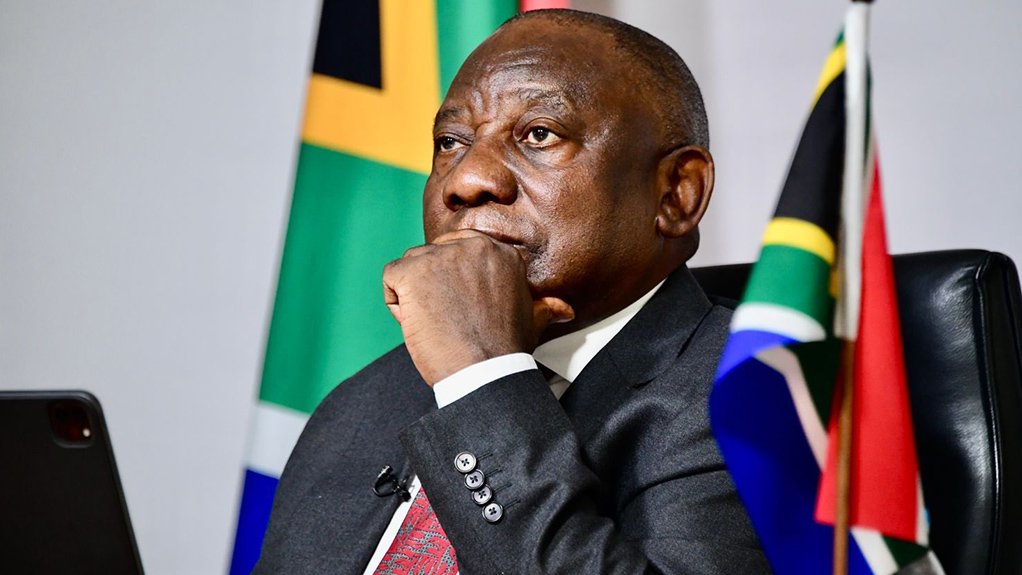President Cyril Ramaphosa noted on Monday that beyond the trauma and instability that crime causes in communities, it is also an impediment to economic growth and development.
Ramaphosa wrote in his weekly letter to the nation that crime and violence have become so common in South Africa, that many citizens often despair of government ever stopping it.
However, he said the fight against crime was gaining momentum, pointing out that if government, business, labour and civil society continued working together, safety and security could be restored, which he said was critical to economic activity and the creation of jobs.
He noted a recent update by the South African Police Service (Saps) on Operation Shanela, highlighting that this should give government encouragement that the fight against crime was gaining momentum.
Operation Shanela, which was launched last year, is a high-density initiative to enhance visible policing and to find wanted suspects, particularly those accused of murder and sex crimes.
He said the successes of Operation Shanela had shown the benefits of multi-sectoral collaboration and the value of specialised task teams.
Ramaphosa said the update delivered by the Saps last week noted that police work over the past year had resulted in more than 700 000 arrests for various crimes, including murder, cash-in-transit robberies, vehicle hijacking and sexual offences.
He added that over the past two years more than 20 000 firearms have been seized, including several homemade guns and rifles.
More than 3 000 firearms were seized in the Western Cape, where gun violence amongst warring gangs was particularly rife, Ramaphosa said.
He pointed out that the Saps had been working closely with the banking sector around the bombing of cash machines, arresting a number of suspects in Gauteng and in the Free State.
He highlighted that during the sixth administration, government established specialised task teams to deal with economic sabotage such as cable theft, the vandalism of power installations and railway lines, illicit mining and extortion in the construction industry.
Meanwhile, Portfolio Committee on Police chairperson Ian Cameron noted concerns about the rise in the number of people shot and killed by police recently, especially in KwaZulu-Natal, urging an increased budget for the Independent Police Investigative Directorate (IPID).
Cameron said his committee was of the view that strong checks and balances provided for by the IPID could allay concerns of extrajudicial killings.
He said his committee would also continue to advocate for more resources when the adjustment appropriation was considered.
“…the police operate in a precarious and dangerous environment that often necessitates the use of force. In this context, police should be enabled to use reasonable force necessary in self-defence. The legislated checks and balances should be a counterbalance to the concerns raised by many,” he explained.
He pointed out that the adoption of technology such as body cameras for police would lead to greater accountability and would provide the necessary evidence of attacks on police.
Cameron also called on the Saps management to strengthen measures to curb the prevalence of illegal firearms in communities as the removal of these firearms would lead to fewer violent crimes.
EMAIL THIS ARTICLE SAVE THIS ARTICLE ARTICLE ENQUIRY
To subscribe email subscriptions@creamermedia.co.za or click here
To advertise email advertising@creamermedia.co.za or click here











